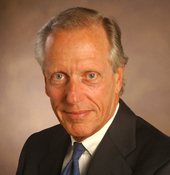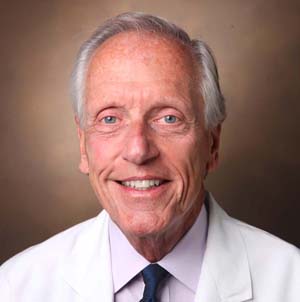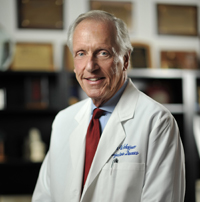William Schaffner, M.D., professor of Preventive Medicine, is this year’s recipient of the American Public Health Association’s (APHA) 2015 John Snow Award, a longstanding award given in recognition of “enduring contributions to public health through epidemiologic methods and practice.”

Schaffner, who was selected by the Awards Committee of the APHA’s Epidemiology Section, received a large cast bronze plaque with an image of John Snow on Nov. 2 at the APHA Annual Meeting in Chicago.
The award honors the late English physician John Snow (1813-1858), considered one of the founders of modern epidemiology.
Snow is best known for his work during the historic 1854 cholera outbreak in Soho, London, where he created a map of each cholera death and traced the outbreak to a single water source, the famous Broad Street pump. He removed the handle from the pump and is credited with helping to end the outbreak, an elegant example of consequential epidemiology.
Snow’s findings led to fundamental changes in the water and waste systems of London, and inspired similar changes in other cities that improved public health across the globe.
Schaffner, who is widely recognized as one of the world’s leading infectious disease experts, has professional contributions that have spanned the spectrum, ranging from creating new infectious diseases science, translating the science into progressive health policy and communicating these advances eloquently to the public via the news media.
Schaffner chaired Vanderbilt’s Department of Preventive Medicine for more than 30 years, was chief of the Division of Infectious Diseases for seven years, was medical director of the clinical microbiology laboratory for 11 years and led the Medical Center’s infection control program for 35 years. He also established a unique and highly successful collaboration with the Tennessee Department of Health that now is a model for other public health/medical center relationships.















